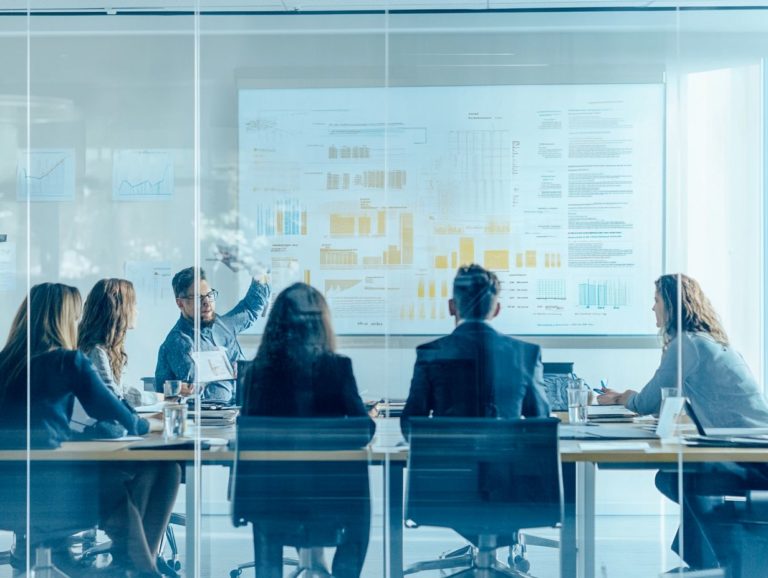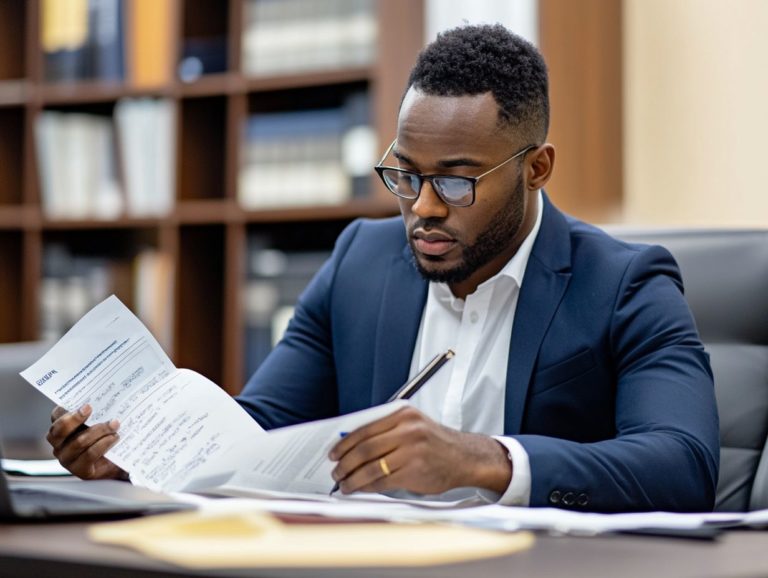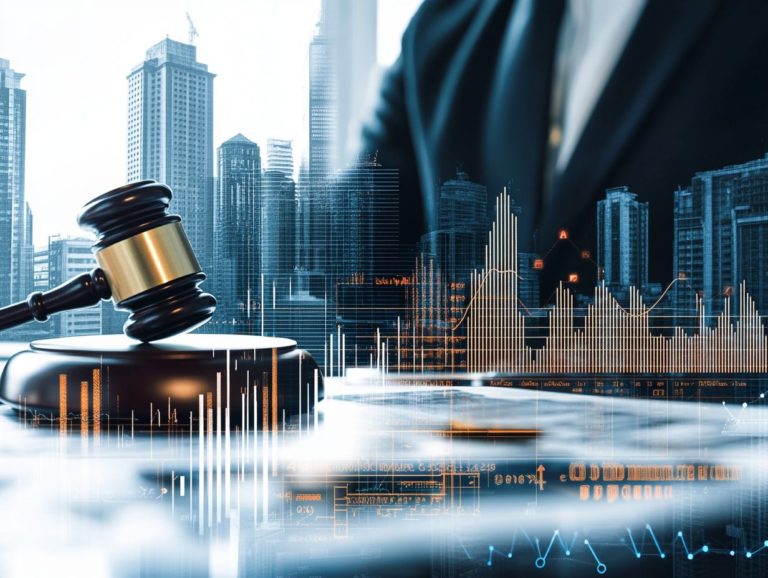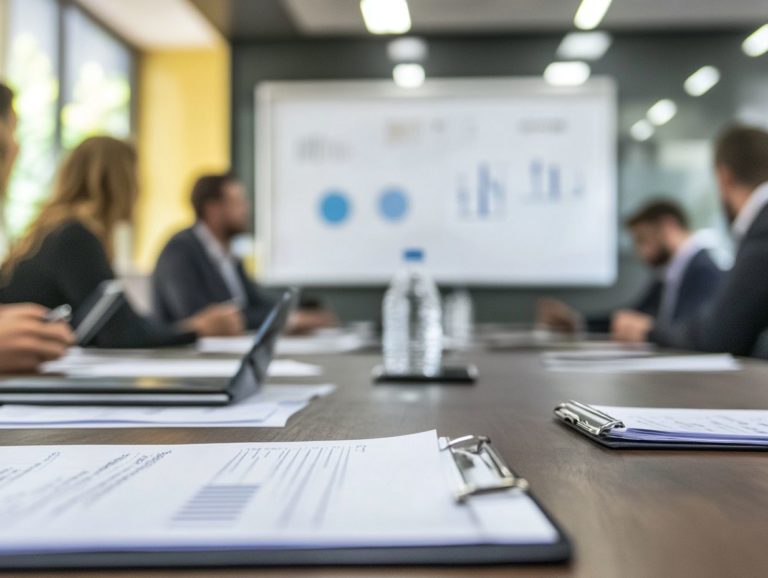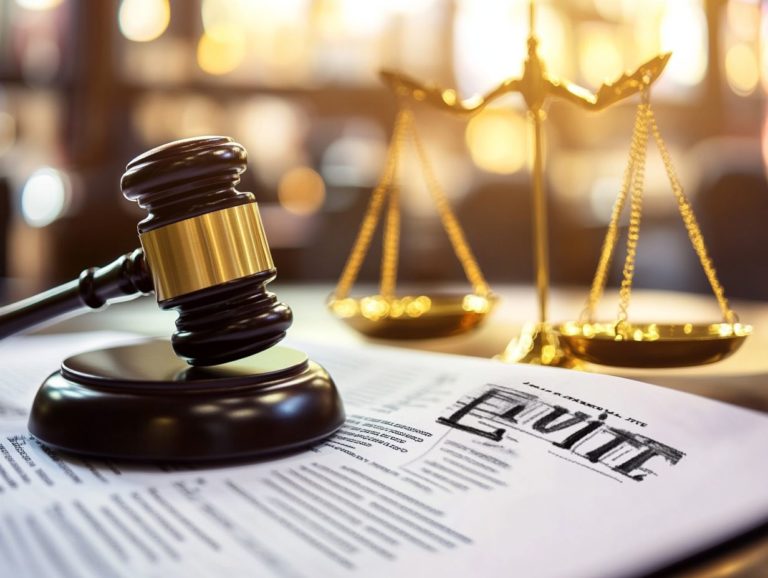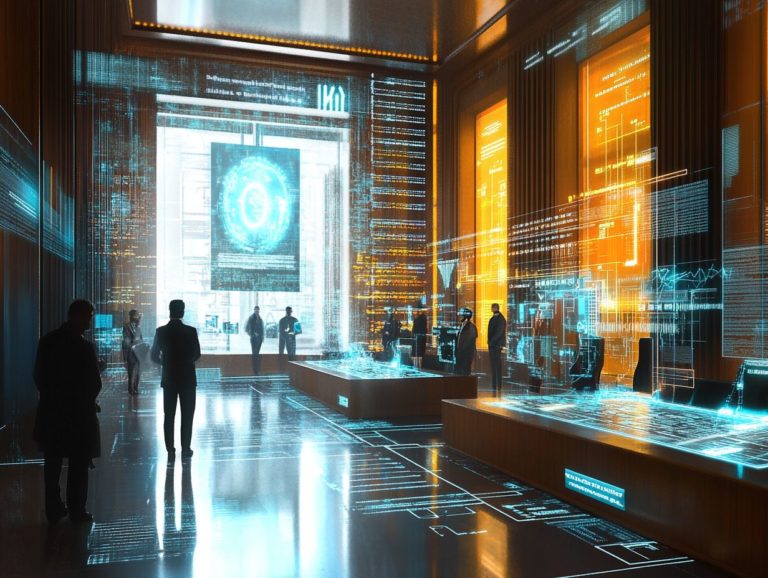The Role of Expert Witnesses in IP Litigation
Expert witnesses are vital in intellectual property (IP) litigation. Their insights help shape the outcomes of cases.
This article delves into the significance of expert witnesses, outlining their qualifications, the various types available, and the essential steps for selecting the ideal one for your case.
This article also discusses the challenges faced by these experts, including potential biases and the nuances of admissible testimony. By grasping these elements, you can significantly enhance your approach to litigation, ensuring that justice prevails in the intricate world of intellectual property.
Contents
- Key Takeaways:
- The Importance of Expert Witnesses in IP Litigation
- Qualifications and Selection of Expert Witnesses
- Types of Expert Witnesses Used in IP Litigation
- The Role of Expert Witnesses in the Litigation Process
- Challenges and Limitations of Expert Witnesses
- Preguntas Frecuentes
- Cu l es el papel de los testigos expertos en litigios de propiedad intelectual?
- C mo se seleccionan los testigos expertos para casos de litigios de propiedad intelectual?
- Qu calificaciones debe tener un testigo experto para litigios de propiedad intelectual?
- Cu l es la diferencia entre un testigo experto y un testigo de hecho en litigios de propiedad intelectual?
- C mo ayudan los testigos expertos en casos de litigios de propiedad intelectual?
- Cu les son las consideraciones ticas para los testigos expertos en litigios de propiedad intelectual?
Key Takeaways:
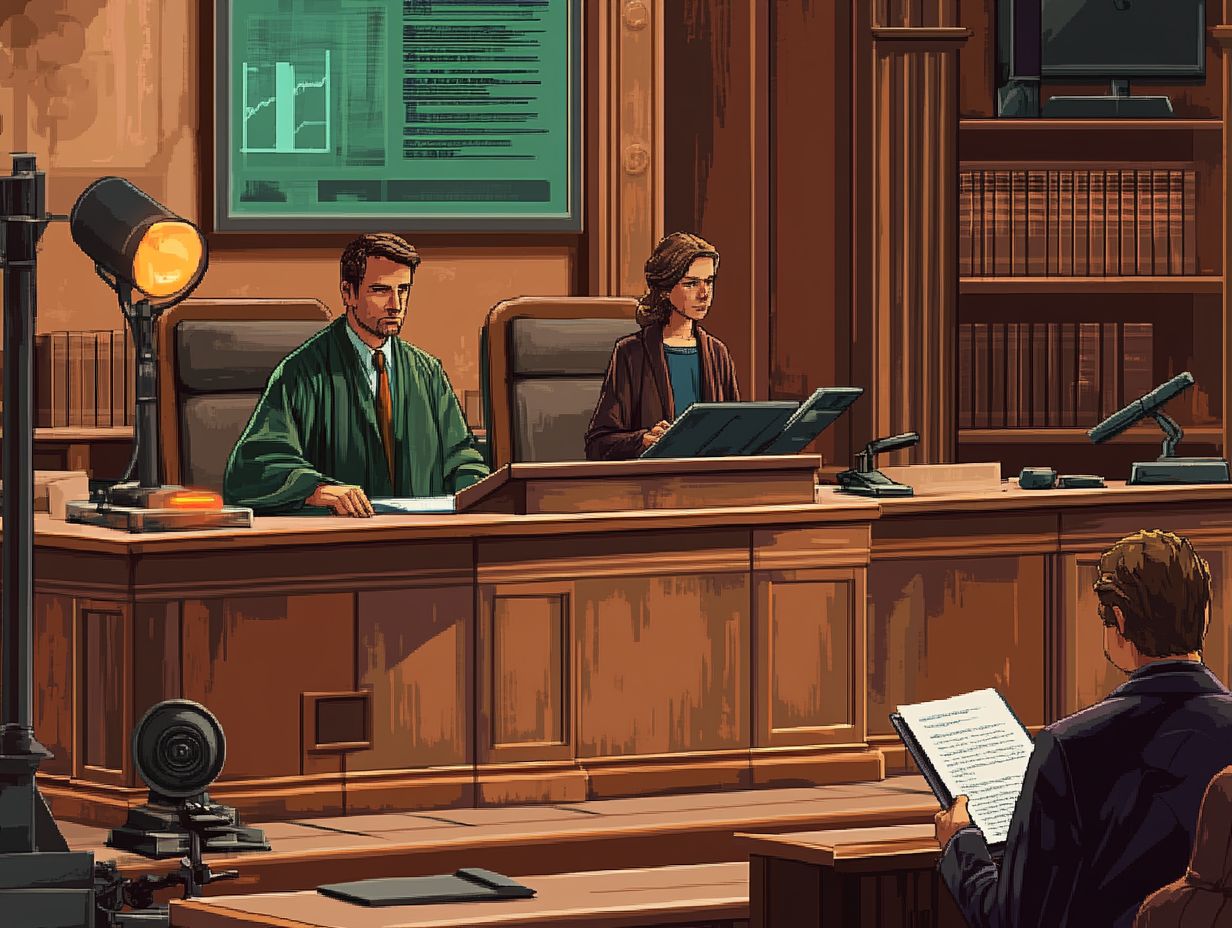
- Expert witnesses provide essential insights in IP litigation.
- Evaluate their qualifications, experience, and potential biases.
- They support throughout litigation, from preparation to court.
The Importance of Expert Witnesses in IP Litigation
The role of expert witnesses in intellectual property (IP) litigation is essential. These professionals offer specialized knowledge and technical expertise that are vital in navigating the complexities of patent litigation, copyright disputes, and understanding the role of the court in IP litigation.
Their presence can profoundly impact the judicial process, shaping court dynamics and influencing the outcomes of legal disputes.
When faced with legal action regarding patent claims, expert witnesses assist in interpreting those claims and deliver expert testimony that is crucial for assessing credibility and determining damages. This boosts the legal process’s integrity and ensures justice is served in civil law matters.
Defining the Role and Purpose
An expert witness takes center stage in patent litigation, providing evidence and expert opinions based on research that illuminate the technical complexities for the court. These professionals are essential when it comes to assessing patent validity and interpreting intricate claims that could easily baffle judges and juries, especially considering the role of public perception in IP litigation.
They don t just present findings rooted in rigorous scientific analysis; they also tackle damages assessment, quantifying potential financial losses to ensure the monetary implications are framed accurately. Their insights serve to bridge the divide between legal terminologies and technical jargon, making complex matters much more digestible.
By contextualizing the evidence within the broader landscape of industry standards and practices, an expert witness significantly enables the legal team to advocate effectively for your position.
Qualifications and Selection of Expert Witnesses
The qualifications and selection of an expert witness are paramount in guaranteeing that the expert can truly add value to the litigation process. This is especially true in specialized areas like intellectual property law and the role of the internet in IP litigation, as well as patent litigation and technology.
Choosing the right expert can make or break your case act wisely!
What to Look for in an Expert Witness
When selecting an expert witness, consider several key factors:
- Credibility assessment
- Specialized knowledge pertinent to your case
- Strong communication skills to effectively convey complex technical information
Examining their educational background can offer valuable insights into their expertise and mastery in their field. An ideal expert typically holds advanced degrees or relevant certifications that bolster their authority.
Experience in patent litigation or copyright disputes is crucial, as it ensures the witness is well-versed in the legal intricacies and context of intellectual property law. Understanding the role of mediation in IP litigation can further enhance their effectiveness. The ability to present expert testimony convincingly can significantly sway a jury’s perception, making it essential for the expert to have a proven track record of articulating complex concepts in an engaging and comprehensible manner.
How to Choose the Right Expert for Your Case
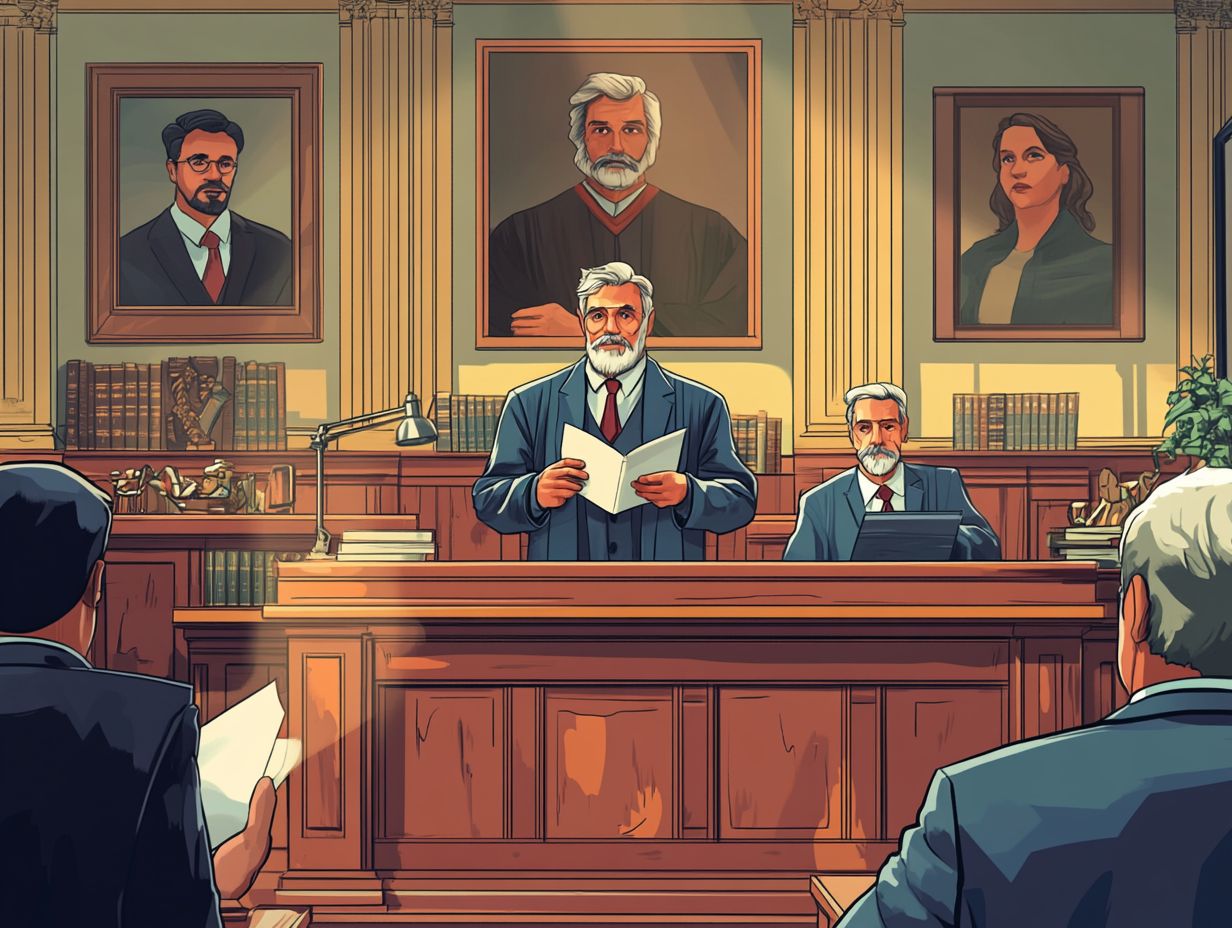
Selecting the right expert witness for your case requires careful evaluation of their expertise and relevance. They must tackle the unique challenges your litigation presents.
Start by assessing their relevant experience in the field. A strong background can significantly sway the outcome.
Understanding their familiarity with the judicial system is vital. An expert who knows courtroom procedures and can clearly explain complex ideas can make a substantial impact.
Consider their ability to provide insights on patent protection or infringement claims. These matters often require specialized knowledge.
Engaging an expert with both credibility and strong communication skills can strengthen your argument in court.
Types of Expert Witnesses Used in IP Litigation
In IP litigation, you’ll encounter various expert witnesses, each serving a distinct purpose.
Technical experts delve into technology’s intricacies and clarify complex issues.
Economic experts evaluate damages precisely, ensuring that financial implications are well understood.
Industry experts offer valuable insights into market trends, enhancing your understanding of the competitive landscape.
Each expert contributes a unique perspective, crucial for building a compelling case.
Technical Experts
Technical experts are invaluable in patent litigation, as they provide essential expertise to interpret claims and clarify complex issues related to the role of international law in IP litigation.
Their role is critical when unraveling intricate patent claims that could confuse legal professionals without a technical background.
By leveraging their specialized knowledge, you can evaluate patent validity and ensure adherence to legal standards.
These experts help assess prior art (previous patents or publications related to the case) and clarify the implications of emerging technologies.
Ultimately, they bridge the gap between law and technology, facilitating informed decision-making in your legal endeavors.
Economic Experts
Economic experts assess damages during legal disputes. They provide the analysis necessary for courts to understand financial implications and the competitive edge at stake.
They use various methods like cost-benefit analysis and lost profits calculations to quantify economic harm.
Their meticulous examination of financial data offers insights that are essential for grasping the extent of damages.
Their testimonies can significantly sway judicial outcomes. Judges often rely on their analyses to make fair decisions.
In many cases, their expertise is invaluable in mediating settlements by clarifying potential monetary losses and expected recoveries.
Industry Experts
Industry experts provide specialized knowledge in IP litigation. They offer insights into market trends and industry standards that can greatly impact legal outcomes, including understanding the role of the jury in IP litigation.
Their expertise highlights complex technical aspects that might otherwise go unnoticed.
By clearly communicating these nuances, they bring clarity to judges, juries, and all parties involved.
This understanding allows the court to make well-informed decisions, underscoring the need for specialized insights aligned with current industry practices.
The contributions of these professionals ensure that the judicial process can effectively address the complexities of intellectual property disputes.
The Role of Expert Witnesses in the Litigation Process
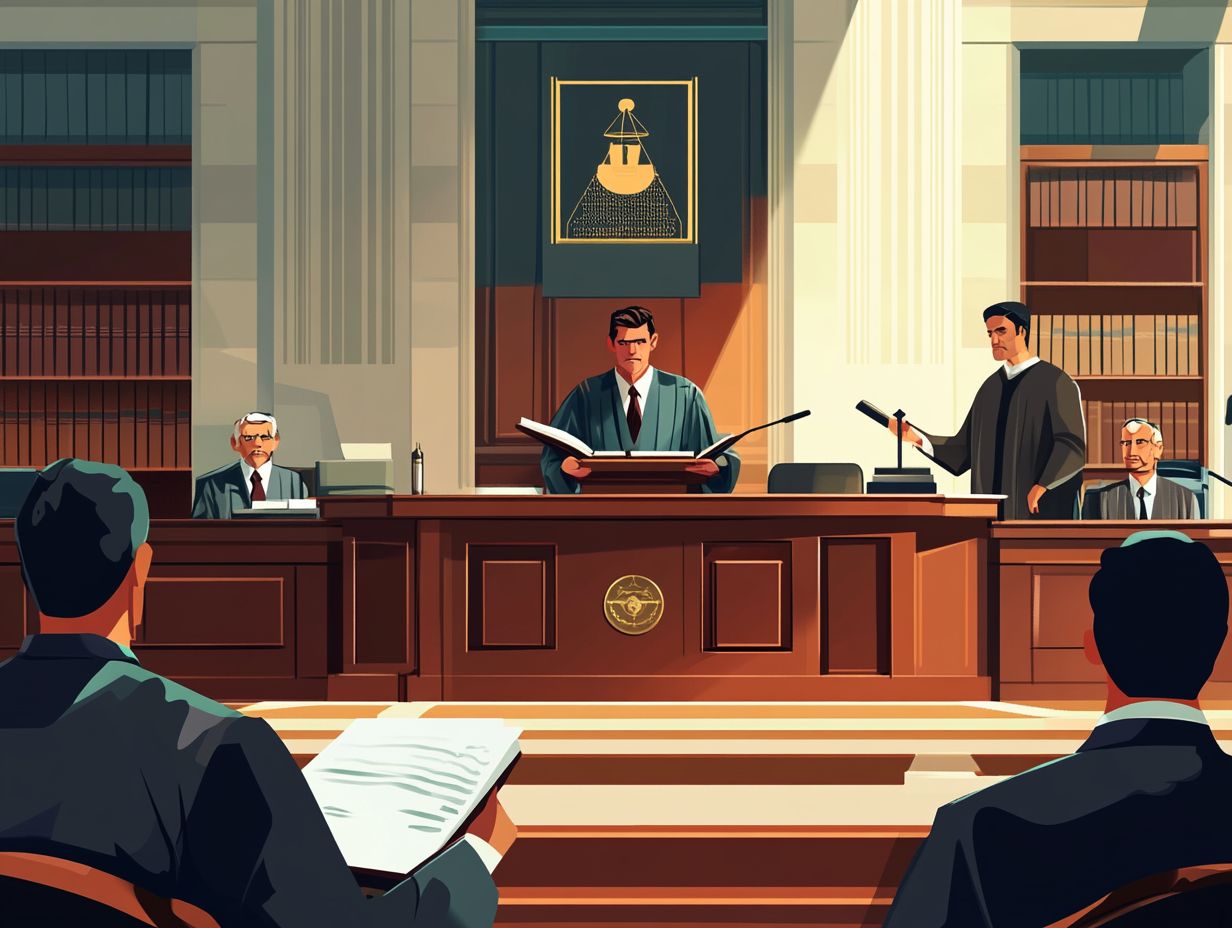
Expert witnesses assume various essential roles in the litigation process. They prepare for trial by collaborating closely with legal teams, and when the moment comes to testify in court, their insights can profoundly impact the outcome of cases, particularly those involving intellectual property disputes.
Preparing for Trial
Preparing for trial involves engaging expert witnesses who collaborate with legal teams. They gather evidence and create a thorough analysis to support the case s arguments.
This process kicks off with a meticulous review of the case materials. Here, the expert identifies key facts and potential complexities that could influence the testimony.
Next, they dive into the relevant data, often studying technical literature, conducting interviews, and analyzing industry standards. It s essential for them to evaluate the validity of the information and how it applies to your case.
Through this rigorous analysis, they develop a clear and persuasive narrative, ensuring their testimony is both accessible and anchored in established methods. By refining their insights, experts become invaluable in clarifying complex issues for both the judge and the jury.
Testifying in Court
Testifying in court can be exhilarating and demanding. As an expert witness, your credibility and the clarity of your testimony can significantly influence the judicial process and the perception of the case’s merits.
The intricacies of this role extend far beyond merely presenting facts; they require a mastery of communication skills that enable you to articulate complex concepts in a way jurors can fully grasp.
It s essential to withstand rigorous cross-examination, as opposing counsel often tries to challenge your position. Nevertheless, your expertise serves as a valuable resource for the court, helping to illuminate intricate issues and facilitate knowledge-based decision making.
Your insights not only bolster arguments but also shape the narratives surrounding evidence, ultimately guiding jurors toward a more enlightened understanding of the case.
Challenges and Limitations of Expert Witnesses
As an expert witness, you encounter a distinct set of challenges and limitations in your role. These can include potential biases, conflicts of interest, and concerns regarding the admissibility of your expert testimony in court.
Navigating these challenges requires not only expertise but also a keen awareness of the legal landscape.
Potential Bias and Conflicts of Interest
Potential bias and conflicts of interest can seriously undermine the credibility of expert witnesses, raising valid concerns about their objectivity and the legal integrity of their testimony.
When experts allow their affiliations or financial incentives to take precedence over impartial analysis, it can distort perceived facts and influence jury perceptions. This issue becomes especially critical in high-stakes cases, where expert opinions hold the power to determine the outcome.
For example, in criminal cases, a biased forensic expert could lead to wrongful convictions, while in civil litigation, skewed medical opinions might unjustly impact damage awards.
To navigate these challenges, legal teams should rigorously vet potential witnesses, employ objective standards for evaluating testimony, and consider bringing in multiple experts to offer a range of perspectives. This approach not only strengthens the case but also enhances the reliability of the evidence presented.
Choose your experts wisely to strengthen your case and ensure justice prevails!
Admissibilidad del Testimonio de Expertos
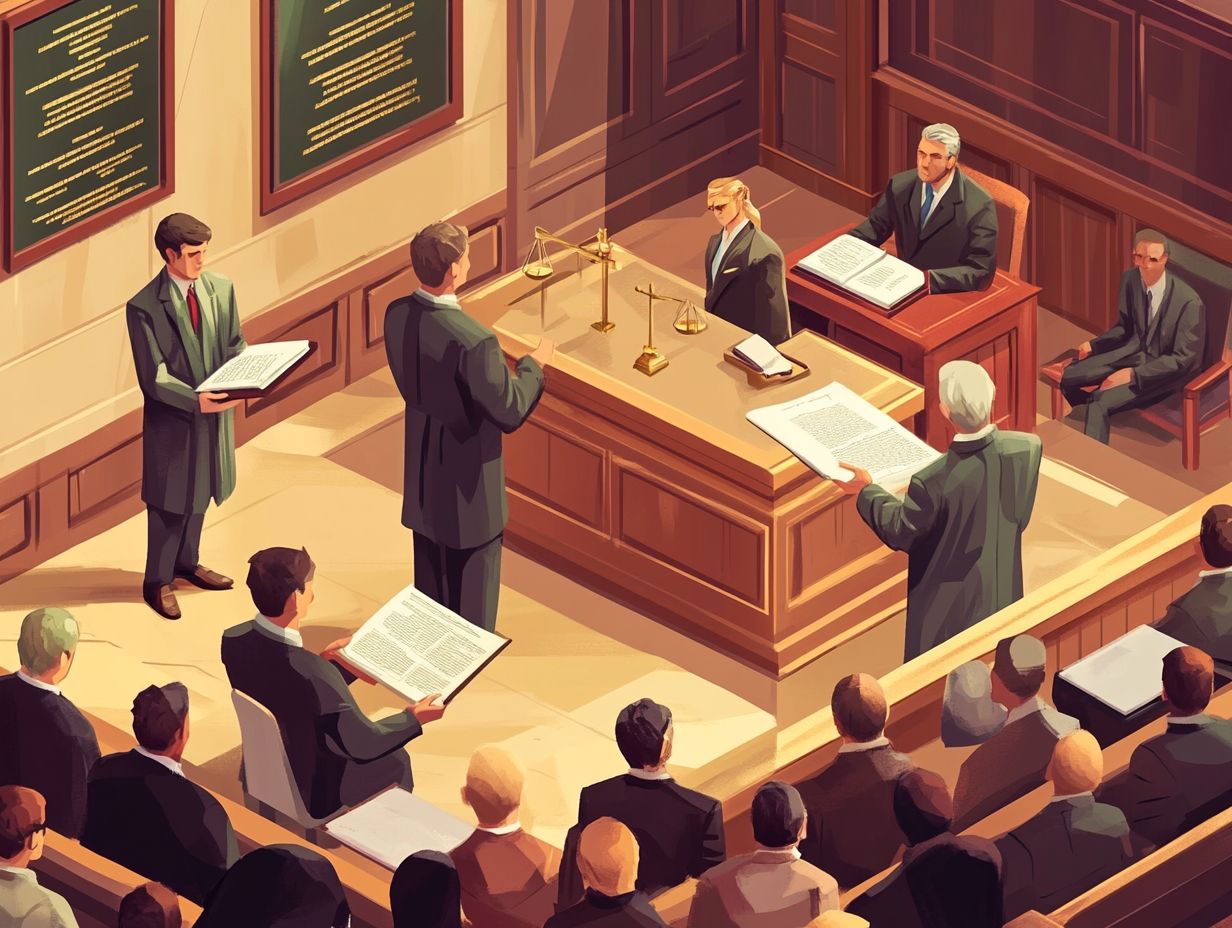
El testimonio de expertos puede hacer o deshacer un caso! Los tribunales siguen pautas legales estrictas para decidir si el an lisis de un experto es relevante y confiable.
El est ndar de Daubert es una de estas pautas. Este est ndar ayuda a evaluar si los m todos del experto son cient ficamente v lidos y aplicables a los temas en cuesti n.
El trasfondo, la educaci n y la experiencia del experto son factores cruciales en este proceso.
Esta cuidadosa revisi n garantiza que el tribunal reciba evidencia precisa, ayudando a cerrar la brecha entre el conocimiento especializado y los requisitos legales.
Preguntas Frecuentes
Cu l es el papel de los testigos expertos en litigios de propiedad intelectual?
Los testigos expertos tienen un papel crucial en litigios de propiedad intelectual al proporcionar conocimientos especializados y opiniones sobre asuntos t cnicos y cient ficos relacionados con el caso. Ayudan al tribunal a comprender cuestiones complejas y ofrecen an lisis y testimonios objetivos.
C mo se seleccionan los testigos expertos para casos de litigios de propiedad intelectual?
Los testigos expertos suelen seleccionarse en funci n de su experiencia y conocimiento en el rea espec fica de propiedad intelectual que se est disputando. Los abogados tambi n consideran la experiencia previa del experto en la sala del tribunal y su reputaci n como testigo cre ble.
Qu calificaciones debe tener un testigo experto para litigios de propiedad intelectual?
Un testigo experto en litigios de propiedad intelectual debe tener un amplio conocimiento y experiencia en su rea de especializaci n, como patentes, marcas comerciales, derechos de autor o secretos comerciales. Tambi n deben tener experiencia proporcionando testimonios expertos en el tribunal y poseer fuertes habilidades de comunicaci n y an lisis.
Cu l es la diferencia entre un testigo experto y un testigo de hecho en litigios de propiedad intelectual?
Un testigo experto es alguien con conocimientos especializados y formaci n en un campo particular que proporciona opiniones y an lisis relacionados con el caso. Un testigo de hecho, por otro lado, es alguien que tiene conocimiento de primera mano de los hechos y eventos relevantes para el caso. Los testigos expertos suelen ser contratados por una de las partes, mientras que los testigos de hecho pueden ser llamados por cualquiera de las partes o por el tribunal.
C mo ayudan los testigos expertos en casos de litigios de propiedad intelectual?
Los testigos expertos ayudan en los casos de litigios de propiedad intelectual proporcionando un an lisis y testimonio imparcial y objetivo relacionados con cuestiones t cnicas y cient ficas. Pueden ayudar a aclarar conceptos complejos y ofrecer valiosos conocimientos y explicaciones al tribunal y al jurado, lo que puede impactar significativamente el resultado del caso.
Cu les son las consideraciones ticas para los testigos expertos en litigios de propiedad intelectual?
Se espera que los testigos expertos cumplan con un estricto c digo de tica en los casos de litigios de propiedad intelectual. Deben permanecer imparciales y objetivos, divulgar cualquier conflicto de inter s potencial y proporcionar informaci n honesta y precisa. El incumplimiento de estos est ndares ticos puede resultar en que el testimonio del experto sea ignorado o incluso en consecuencias legales.

